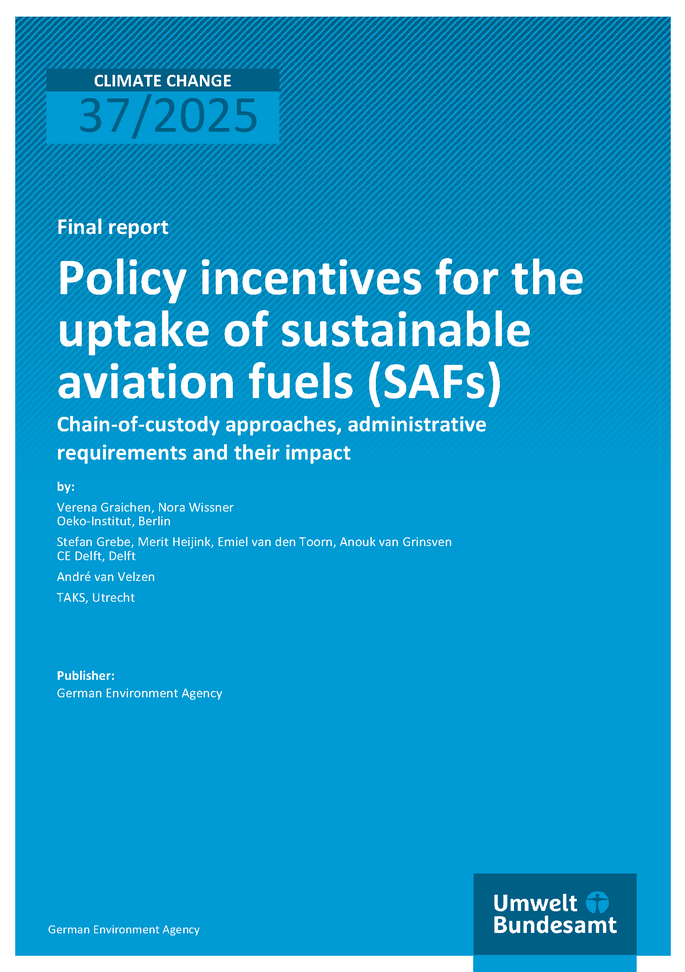
Klima | Energie, Verkehr
Policy incentives for the uptake of sustainable aviation fuels (SAFs)
Chain-of-custody approaches, administrative requirements and their impact
Aviation contributes approximately 2.5% of global CO2 emissions. When non-CO2 effects are taken into account, its overall climate impact is even higher. To mitigate these emissions, the use of sustainable aviation fuels (SAF) is crucial. SAF, produced from sustainable feedstocks, can significantly reduce life-cycle emissions compared to fossil kerosene. Despite policies promoting SAF uptake, their current share in aviation fuel consumption remains minimal: SAF comprises only about 0.1% of total consumption. This report analyses the reasons behind this limited uptake and identifies necessary changes in the reporting and claiming framework to better incentivise SAF adoption and reporting under the EU Emissions Trading System (EU ETS).